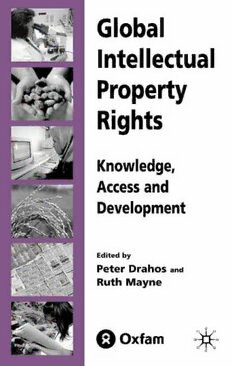
Global intellectual property rights: knowledge, access and development PDF
297 Pages·2002·1.3 MB·English
Most books are stored in the elastic cloud where traffic is expensive. For this reason, we have a limit on daily download.
Preview Global intellectual property rights: knowledge, access and development
Description:
Intellectual property rights such as patents can reduce access to knowledge in genetics, health, agriculture, education and information technology, particularly for people in developing countries. Global Intellectual Property Rights shows how the new global rules of intellectual property have been the product of the strategic behaviour of multinationals, rather than democratic dialogue. The final section of the book suggests strategies aimed at developing more flexible standard for poor countries, and for keeping knowledge in the intellectual commons.
See more
The list of books you might like
Most books are stored in the elastic cloud where traffic is expensive. For this reason, we have a limit on daily download.
